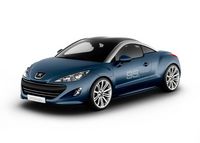|
|
|---|
Wednesday, August 19, 2009
 The Frankfurt Motor Show is the venue for the launch of the production version of the exciting RCZ sports car – Peugeot will also take the opportunity to unveil the RCZ concept Hybrid4.
The Frankfurt Motor Show is the venue for the launch of the production version of the exciting RCZ sports car – Peugeot will also take the opportunity to unveil the RCZ concept Hybrid4.
The RCZ is intended to meet the dynamic requirements of discerning drivers and the modern demands for cleaner and more efficient vehicles.
Continuing this philosophy, the study of an RCZ powered by Peugeot’s HYbrid4 technology will be revealed at this year’s Frankfurt Motor Show.
The RCZ Hybrid4 is based on the power train seen in the 3008 HYbrid4 which will go on sale in Europe in mid-2011: a 2.0-litre HDi FAP diesel engine of 120 kW at the front and an electric motor of 27 kW maximum at the rear.
Remarkably, if this sports coupe was available in Australia today, the RCZ HYbrid4 concept car would be the most fuel efficient car in the country.
It offers a level of fuel consumption and CO2 emissions previously unheard of in the world of sports cars: 3.7 litres/100 km and 95 g/km of CO2, proof that sportiness can also be environmentally responsible.
Power and torque figures suit the sporty pretensions of the RCZ Hybrid4, with a combined potential power of 147 kW and maximum torque of 300 Nm at the front and 200 Nm at the rear.
Peugeot’s 6-speed electronically controlled manual gearbox, already used throughout the Peugeot range, is combined with the internal combustion engine due to its automatic operation mode and ability to optimise fuel consumption.
The chassis is even more effective as it benefits from the multi-link rear suspension which makes up the rear module of the Hybrid4 technology.
The 2.0-litre HDi FAP engine under the aggressive front bonnet powers the front wheels and the electric motor in the rear powers the rear wheels to create a four-wheel drive system.
PSA Group’s Hybrid4 vehicles are powered by an internal combustion engine (diesel) and an electric motor, which can operate independently or together.
The internal combustion engine operates mostly on main roads and motorway journeys.
The electric motor takes over from the internal combustion engine during its less efficient phases, in particular when moving off or when driving at low speed or again on deceleration (energy recovery).
This corresponds exactly to the needs of the vehicle when operating in urban conditions.
This application reflects Peugeot’s desire to offer Hybrid4 in different vehicles across its range – vehicles that may be very different (crossover, coupé…), based on different platforms, but with a common goal: to offer renewed driving enjoyment.
Peugeot has logically turned to its own well-respected HDi FAP technology as the internal combustion engine in the Hybrid4 system – technology that features exceptional performance and fuel economy from engines that are thermodynamically more efficient than petrol engines – approximately 30% lower consumption on equivalent cubic capacity.
Peugeot has a lot of historical expertise to call upon for the electric element of Hybrid4 – to date, the Peugeot 106 Electric, marketed between 1995 and 2003, remains the best selling zero emissions vehicle in the world.
In fact, the PSA Group has produced 10,000 electric vehicles, establishing itself as a true industrial pioneer in this sector.
Labels: Peugeot Sports Car















0 comments:
Post a Comment